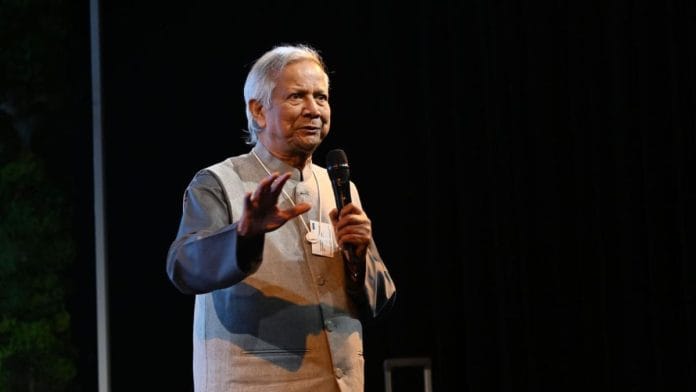New Delhi: Chief adviser of the Bangladesh interim government, Muhammad Yunus has said that the next elections in the country are likely to be held in late 2025 or mid-2026, after the ouster of the previous regime following the student uprising last year. Speaking at the World Economic Forum in Davos Thursday, Yunus emphasised that this timeline hinges on the country’s reform process.
“By the end of this year, we will finalise a short reform agenda,” he explained. “If people decide on a more comprehensive set of reforms, then elections could be delayed until mid-2026.”
These changes would be done with the help of 15 reform commissions established to redesign the nation’s institutions, from the constitution to the judiciary. Yunus detailed the effort to overhaul the country’s election process, which, for the past 16 years, he said, had been plagued by corruption and rigged results.
He added that under the former regime, elections were held without actual voting, leaving millions of young people disenfranchised. The upcoming election would be a clean, fair vote, ensuring every citizen can cast their ballot without fear of intimidation or fraud, he said. “We want to ensure that the youth who are becoming voters for the first time have an opportunity to vote freely and fairly. This generation is our future, and they must have a say in what happens next.”
Yunus, who was in Paris during the uprising in 2024, clarified that while he did not directly participate in the protests, he was deeply moved by the spontaneous unity shown by the youth. The movement, which began in the streets with students and quickly gathered momentum, led to the eventual collapse of Sheikh Hasina’s government. “There was no central plan, no leader,” Yunus said. “It was a spontaneous response to years of oppression, and it shook the government to its core.”
He added, “The people of Bangladesh do not want to go back to the old Bangladesh. We are committed to creating a new Bangladesh—one that is truly democratic and inclusive.”
His primary task, he said, was to restore order and revitalise the economy, which had been “plundered” under Hasina’s rule. According to reports from a government-commissioned white paper, an estimated $17 billion was laundered out of the country, with loans given out under the guise of being “repayable”, but with no intention of being returned.
“The way they did it was highway robbery,” Yunus went on, adding that under Hasina, the regime had turned the judiciary into a tool of repression, with thousands of people imprisoned or forced to disappear for opposing the government. He described the situation as a “self-destructive civilisation”, where corruption and suppression had left the economy in tatters.
He described the reform process as both a monumental challenge and an opportunity for the country to start anew. “We’re starting with the basics: restoring the economy, rebuilding the banking system, and getting the government functioning again.”
But Yunus is not just focused on the immediate tasks of governance. His vision, he said, extends to a broader transformation.
He highlighted the pressing issue of climate change, which is already affecting Bangladesh, a country highly vulnerable to flooding and environmental degradation due to its location along the Bay of Bengal and reliance on the Himalayan glaciers. “We are one of the countries most exposed to environmental challenges, and this makes our task all the more urgent.”
Yunus also addressed what he sees as the most promising development of all—the young people, who led the charge in overthrowing the old regime.
“This generation is the most powerful in human history,” he declared, adding that the global connectivity of today’s youth through technology gives them unparalleled power to change the world. “These young people are not just Bangladeshi anymore. They are global citizens. And when they decide enough is enough, no one can stop them.”
Yunus ended by calling on the international community to pay closer attention to Bangladesh’s experience, urging global institutions to study the country’s recent upheaval as a powerful lesson in the potential of youth-led movements and grassroots change.
“Bangladesh should be studied. It offers a glimpse into what can happen when a generation rises up and refuses to be ignored.”






